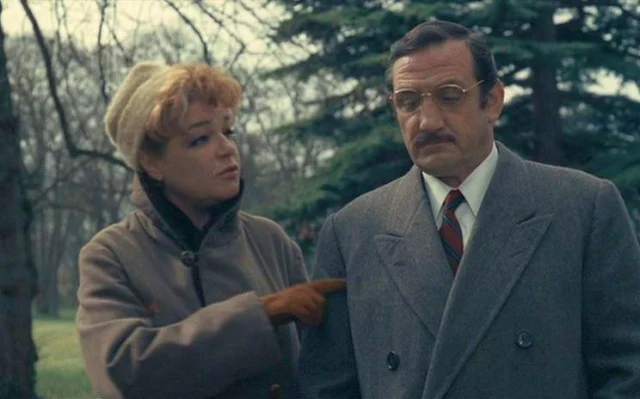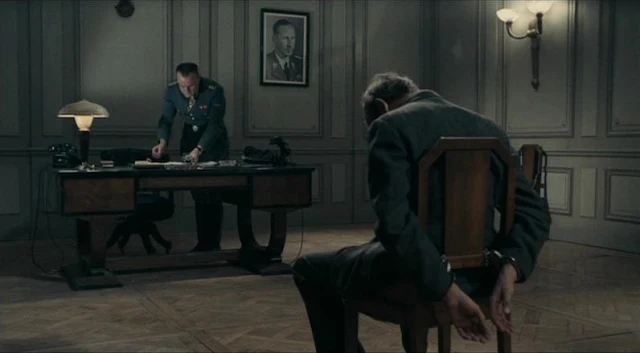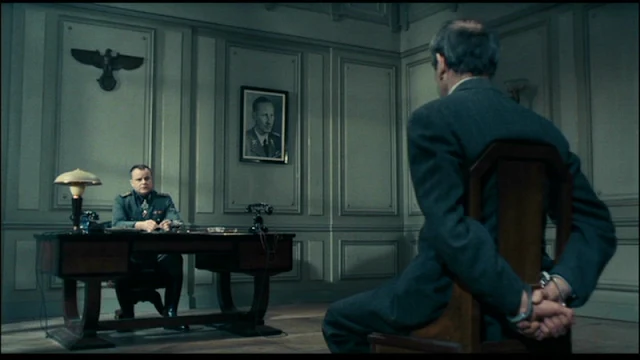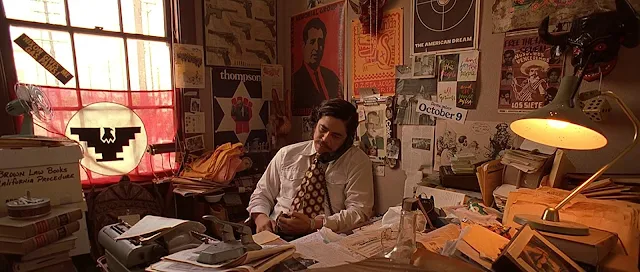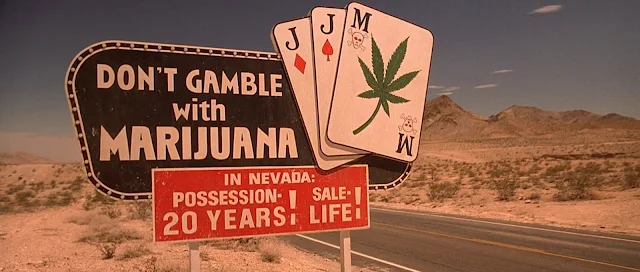A blog formerly known as Bookishness / By Charles Matthews
"Dazzled by so many and such marvelous inventions, the people of Macondo ... became indignant over the living images that the prosperous merchant Bruno Crespi projected in the theater with the lion-head ticket windows, for a character who had died and was buried in one film and for whose misfortune tears had been shed would reappear alive and transformed into an Arab in the next one. The audience, who had paid two cents apiece to share the difficulties of the actors, would not tolerate that outlandish fraud and they broke up the seats. The mayor, at the urging of Bruno Crespi, explained in a proclamation that the cinema was a machine of illusions that did not merit the emotional outbursts of the audience. With that discouraging explanation many ... decided not to return to the movies, considering that they already had too many troubles of their own to weep over the acted-out misfortunes of imaginary beings."--Gabriel García Márquez, One Hundred Years of Solitude
Search This Blog
Monday, September 30, 2019
Un Flic (Jean-Pierre Melville, 1972)
Un Flic (Jean-Pierre Melville, 1972)
Cast: Alain Delon, Richard Crenna, Catherine Deneuve, Riccardo Cucciolla, Michael Conrad, Paul Crauchet, Simone Valère, André Pousse. Screenplay: Jean-Pierre Melville. Cinematography: Walter Wottitz. Production design: Théobald Meurisse. Film editing: Patricia Nény. Music: Michel Colombier.
It's amazing how hard it is to make Alain Delon look ordinary. In Un Flic, the last film by Jean-Pierre Melville, who made Delon's unsurpassable good looks and cool the essence of Le Samouraï (1967), he's supposed to be a tough, weary cop, a chief of detectives. So his hair is not so neatly combed as usual, he's made up to look a little pale, and there are wrinkles under the celebrated blue eyes. The thing is, however, that Delon pulls the character off successfully -- unlike other handsome actors, he makes us look past the beauty. We see what's going on in his head as he makes his rounds. It's Delon's charisma that justifies the film's title, because in fact the movie focuses more on the robbers than on the cops. (When it was released on video in the United States it was retitled Dirty Money.) The thieves get the film's two big set pieces: the bank robbery at the beginning of the film, and the famous 20-minute helicopter-and-train sequence in the middle, in which Richard Crenna's Simon is put through a hair-raising James Bond-style stunt. The latter scene is preposterous, of course: When and how did Simon and the helicopter guys practice for this elaborate heist, which has to come off without a hitch? But the sequence works in part because the rest of the film is based in gritty reality, such as the bleak off-season ocean-front setting of the opening, with the rows of anonymous modern buildings presenting blank, boarded up windows to the stormy winter sea that roars in the background of the bank robbery. (The sound recording of André Hervée and sound editing of Maurice Lemain deserve special mention.) Un Flic exists in a neverland intersection between actuality and movie artifice, a place Melville visited in almost all of his films.
Sunday, September 29, 2019
Aquaman (James Wan, 2018)
Aquaman (James Wan, 2018)
Cast: Jason Momoa, Amber Heard, Willem Dafoe, Patrick Wilson, Nicole Kidman, Dolph Lundgren, Yahya Abdul-Mateen, Temuera Morrison, Ludi Lin, Michael Beach, Randall Park. Screenplay: David Leslie Johnson-McGoldrick, Will Beall, Geoff Johns, James Wan. Cinematography: Don Burgess. Production design: Bill Brzeski. Film editing: Kirk M. Morri. Music: Rupert Gregson-Williams.
I sometimes feel with the comic-book-sourced superhero movie that we have moved not just into a separate genre but into an entirely separate medium: a fusion of video games, technology, and neo-mythology that's something other than traditional cinematic storytelling. Any auteur-theory criteria that we might apply to the movies we knew and loved are irrelevant when the number of credited people who worked on a film runs into the thousands. Aquaman is an artifact, meant to have its two-and-a-half hours experienced in the most technologically advanced venue possible, as a kind of Gesamtkunstwerk -- wouldn't Richard Wagner have been happy to have CGI and Dolby sound and Imax and 3-D for his Ring? From time to time we glimpse remnants of the old conventional cinema in Aquaman: engaging performers like Jason Momoa and Willem Dafoe and Nicole Kidman (who seems to be everywhere -- when does the woman sleep?). But their puny human efforts are swamped by the technology, so much so that we hardly care about their characters when computer-generated things are zooming and whizzing in every direction. Sometimes the humans are taken over physically by the computer, which makes them look younger (Dafoe) or brawnier (Momoa) than they are in reality. Which is all just to say that I enjoyed Aquaman as whatever it is, but I kind of hated it as a movie.
Saturday, September 28, 2019
Army of Shadows (Jean-Pierre Melville, 1969)
Cast: Lino Ventura, Paul Meurisse, Jean-Pierre Cassel, Simone Signoret, Claude Mann, Paul Crauchet, Christian Barbier, Serge Reggiani, André Dewavrin, Alain Dekok, Alain Mottet, Alain Libolt, Jean-Marie Robain. Screenplay: Jean-Pierre Melville, based on a novel by Joseph Kessel. Cinematography: Pierre Lhomme, Walter Wottitz. Production design: Théobald Meurisse. Film editing: Françoise Bonnot. Music: Éric Demarsan.
The stoic restraint that pervades Army of Shadows extends to the images provided by the credited cinematographers, Pierre Lhomme and Walter Wottitz. For a long time I wasn't really sure whether the film was made in color or black and white, so desaturated are the images. Occasionally the color of a garment or Simone Signoret's hair or the blue of the Mediterranean in the background will catch the eye, but for the most part the film takes place in a world drained of anything suggestive of vivid life. Death is presented as something inevitable, as something that has to be gone through, so futile has resistance to the occupation of France by the Nazis become. Faced with executing a traitor, the Resistance operatives feel reluctance and guilt but also proceed practically: The sound of a gun would attract attention; there are no usable knives at hand; so the solution is to strangle their former comrade with a kitchen towel, and the garroting proceeds with as little drama as possible. This is a film about endurance rather than action, about moral choices made with deliberation and without fuss. Sometimes what action there is feels contrived: The rescue of Gerbier from prison at the moment of his execution depends on sheer luck and coincidence and not on skillful timing and precise intelligence. But dramatic probability is not the point, instead it's the feeling that all of the lives depicted in the film are poised on a razor's edge.
Friday, September 27, 2019
Fear and Loathing in Las Vegas (Terry Gilliam, 1998)
Fear and Loathing in Las Vegas (Terry Gilliam, 1998)
Cast: Johnny Depp, Benicio Del Toro, Tobey Maguire, Katherine Helmond, Craig Bierko, Mark Harmon, Laraine Newman, Verne Troyer, Penn Jillette, Cameron Diaz, Lyle Lovett, Flea, Gregory Itzin, Gary Busey, Christopher Meloni, Christina Ricci, Michael Jeter, Harry Dean Stanton, Ellen Barkin. Screenplay: Terry Gilliam, Tony Grisoni, Todd Davies, Alex Cox, based on a book by Hunter S. Thompson. Cinematography: Nicola Pecorini. Production design: Alex McDowell. Film editing: Lesley Walker. Music: Ray Cooper.
Terry Gilliam's Fear and Loathing in Las Vegas invites the easy critical brush-off: What happened in Vegas should have stayed in Vegas. Many of its first-release critics, including Roger Ebert, certainly took that view. So did ticket-buyers, who stayed away. And even in hindsight it's a little hard to figure why the film was made when it was made. Hunter S. Thompson's book was published in 1971, and although there had been some earlier efforts to turn it into a movie, it was hardly fresh subject matter in 1998. But the film has developed followers over the years since, and it's now possible to appreciate the skill with which Gilliam takes on this recreation of a drug-maddened milieu, and especially the acting of Johnny Depp and Benicio Del Toro as the wildly tripping Duke and Dr. Gonzo. I will admit that Depp, 35 at the time, seems to me a little too young and fresh-faced for the dissipated Duke -- even though Thompson himself was pretty much the same age when the events he wrote about took place -- but it's one of his best performances. The film also benefits from an abundance of familiar faces in small roles, such as the underappreciated Ellen Barkin as a waitress unwilling to put up with abusive stoners. Fear and Loathing in Las Vegas probably has little value except as a portrait of the Nixon era as seen from the end of the Clinton era, and it's certainly an exhausting film to watch, but it's a unique experience.
Subscribe to:
Comments (Atom)






















